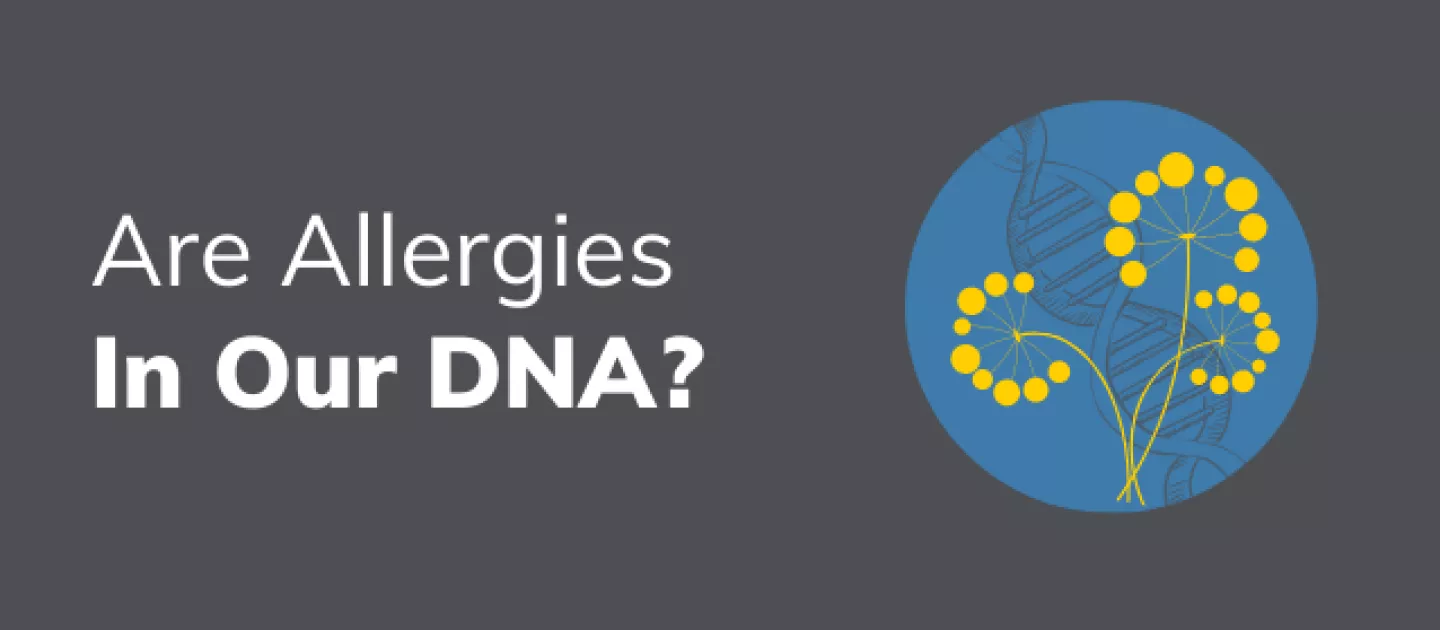When people think about what their birth month means to them, the first thing that might come to mind is their horoscope and how it indicates certain traits and characteristics like their personality and interests. Now, there’s something else to think about when it comes to birth month.
There is evidence that the month you are born could affect how likely you are to have allergies. While you won’t find out about allergies from your horoscope, you very well could find it in your DNA.
Birth Month and Allergy Risk
Researchers have known for a long time of the correlation between birth month and allergies. People born in the fall and winter are more likely to have eczema, hay fever, food allergies, eczema, and asthma than people born in other seasons.
What researchers hoped to learn more about was why this happens . . . and they found the answer in DNA. A study published in Allergy, analyzed DNA samples collected from participants when they were born. They found a correlation between specific epigenetic marks and birth month that remained present 18 years after they were born. The epigenetic marks were also linked to specific allergies depending on the birth month.
Allergies and Epigenetic Marks
Our DNA contains markers called epigenetic marks that determine things about us like how tall we are, how much we weigh, and our risk of developing certain diseases and conditions – like allergies. Epigenetic marks alter gene expression, which in turn affects our health and helps to answer why people are likely to develop certain allergies.
Researchers from the study looked closely at a specific epigenetic marker called DNA methylation. In DNA methylation, methyl groups are responsible for reproducing cells and turning genes on and off, which can impact the body’s ability to respond to the environment around them.
The study uncovered areas on the genome where DNA methylation occurred consistent with certain birth months. These findings helped confirm the link to allergies based on epigenetic marks and changes in gene expression. More research into how the environment affects allergies and birth season needs to be done, but this study is a step forward in providing insight into how DNA plays a role in allergies.
Having the ability to study epigenetic marks, changes in gene function, and environmental influences further increases our ability to understand the likelihood of developing allergies and other conditions and how they might progress. More knowledge in this area could make a big difference in the future treatment and prevention of conditions for individuals.
Follow us on Facebook, Twitter, and Instagram to join the conversation and stay up-to-date on cord blood & tissue, genetics, pregnancy, and everything in between!
Disclaimer: PerkinElmer does not endorse or make recommendations with respect to research, medication, or treatments. All information presented is for informational purposes only and is not intended as medical advice. For more details and references, please visit viacord.com
Resources:
Allergy. Association of season of birth with DNA methylation and allergic disease. https://onlinelibrary.wiley.com/doi/full/10.1111/all.12882
Medline Plus. What is epigenetics? https://medlineplus.gov/genetics/understanding/howgeneswork/epigenome/
YourGenome.org. What is Gene Expression? https://www.yourgenome.org/facts/what-is-gene-expression
Nature. The Role of Methylation in Gene Expression. https://www.nature.com/scitable/topicpage/the-role-of-methylation-in-gene-expression-1070/











